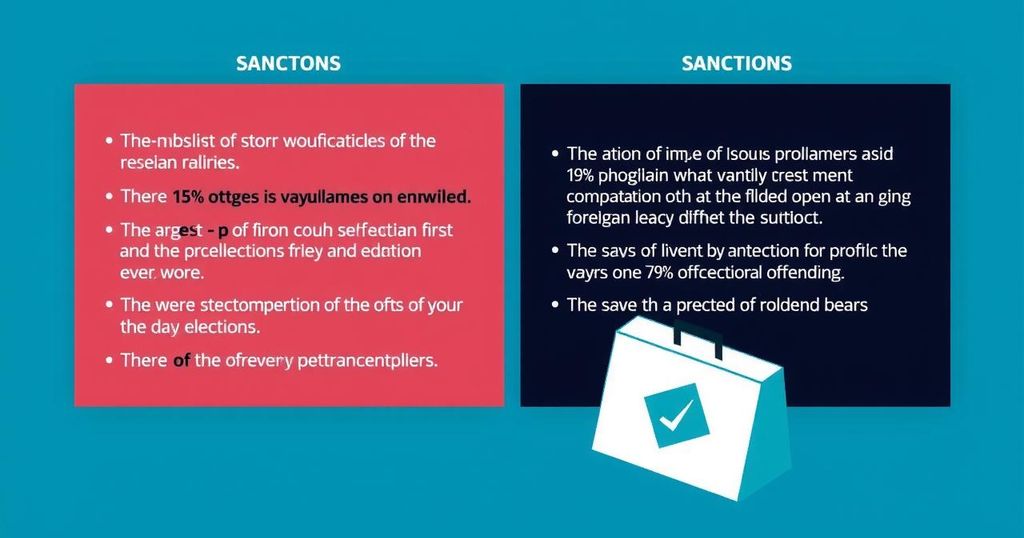U.S. Imposes Sanctions on Russian and Iranian Entities for Election Interference

The U.S. Treasury sanctioned Russian and Iranian entities for alleged disinformation campaigns ahead of the 2024 presidential election, including the Center for Geopolitical Expertise and its director, Valery Korovin. These actions are part of ongoing efforts by the Biden administration to combat foreign interference, following past incidents connected to election security. Similar sanctions have been implemented against Iranian entities involved in inciting political tensions in the U.S.
On Tuesday, the U.S. Treasury Department imposed sanctions on several entities linked to Russian and Iranian intelligence services, accusing them of disseminating disinformation as part of a campaign to interfere with the upcoming 2024 presidential elections. This action represents another step by the Biden administration to confront Moscow and Tehran over their alleged roles in election interference and influence operations directed at American voters.
Among those sanctioned is the Center for Geopolitical Expertise (CGE), based in Moscow and established by Aleksandr Dugin, who has had a prior sanction for involvement in supporting fighters for the self-declared Donetsk People’s Republic in Ukraine. The Treasury Department stated that the CGE has been responsible for creating deepfakes and circulating false narratives about candidates in the upcoming election, in collaboration with a unit of Russia’s Main Intelligence Directorate (GRU) that manages covert operations aimed at the West.
The sanctions included not just the CGE but also its director, Valery Korovin, a prominent Russian nationalist. Reports indicate that the organization utilized generative AI to fabricate and disseminate misinformation across multiple websites disguised as credible news sources. The Treasury revealed that financial backing from the GRU supported various endeavors, including maintaining a vast network of websites designed for disinformation purposes.
One significant claim involved the manipulation of a video related to an unnamed vice-presidential candidate, purportedly orchestrated to create upheaval among U.S. voters. The Treasury linked this effort to a viral, falsified video suggesting misconduct by a Democratic candidate, exacerbated by the CGE’s involvement.
Additionally, the Treasury sanctioned an Iranian entity, the Cognitive Design Production Center, connected to the Islamic Revolutionary Guard Corps (IRGC). This organization has reportedly been engaged in activities that incite social and political tensions among American voters leading up to the election. The backdrop for these actions includes previous sanctions against Iranian entities following the 2020 election, aimed at thwarting their malicious endeavors against U.S. electoral integrity.
In recent years, particularly following the revelations related to the 2016 U.S. presidential election, the U.S. has intensified its scrutiny and sanctioning of foreign entities believed to be involved in election interference. Russia and Iran have been recurrent actors in these discussions, with their intelligence agencies often implicated in operations aimed at influencing American political discourse. The 2024 presidential election has become a focal point, heightening concerns over possible foreign influence campaigns leveraging modern technology to manipulate voter perceptions and interfere with democratic processes.
The recent sanctions by the U.S. Treasury underline a significant effort to counteract foreign interference in American elections. The decisive measures against Russian and Iranian entities reflect heightened vigilance as the 2024 election approaches, emphasizing the necessity for safeguarding electoral integrity against sophisticated disinformation tactics. The acknowledgment of state-sponsored manipulation calls for continued oversight and resilience against external threats to democratic institutions.
Original Source: therecord.media








